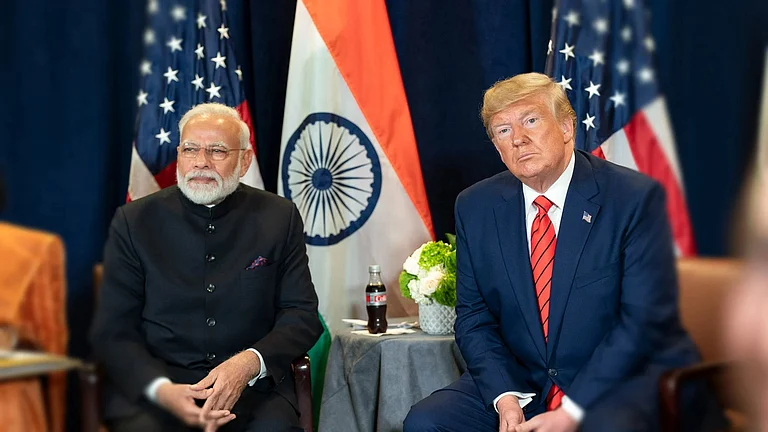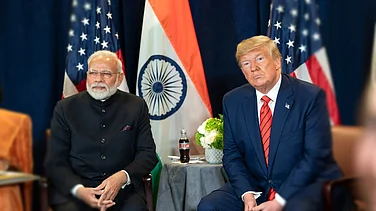The seeds of JAM (Jan Dhan-Aadhaar-Mobile) trinity sown in FY15 that enabled India to develop COVID-19 vaccination digital infrastructure Co-WIN in a time-bound manner, proved to be life saver for the nation, according to the Economic Survey 2022-23.
Thanks to the robust digital infrastructure of Co-WIN, which is "a successful digital story of vaccination to tell", the survey tabled in Parliament on Tuesday, said India could administer over 220 crore COVID-19 vaccine doses.
Even before COVID arrived, India had laid down the strategy for mass vaccination as year-long programmes were running for several other diseases. Over the years, the government focussed on digital health service delivery by imbibing the basic philosophy of "Antyodaya", the survey said.
However, the need for end-to-end digitisation in the vaccination process was felt as this was the only way to achieve herd immunity during the pandemic. While many economies had to develop a model from scratch, India was in a comfortable position.
"Thanks to the government's vision of the JAM trinity, the critical challenge was addressed in a time-bound manner through Co-WIN (Covid Vaccine Intelligence Network) in implementing the National COVID-19 Vaccination Programme," it said.
The present administration of more than 220 crore COVID-19 vaccine doses was made possible because of the robust digital infrastructure of Co-WIN, the survey added.
"It was this broad interlock of digital framework and the government's vigour of continuously improving its outreach for better inclusion that India could register a quick and durable economic recovery while continuing to secure both lives and livelihoods," the pre-Budget document pointed out.
Further, it said, "With more than 84.7 crore Co-WIN beneficiaries seeded with Aadhaar among the total 104 crore (between January 2021 to September 2022), the seeds of JAM sown in FY15 proved to be a life saver for the nation."
Co-WIN has been developed as an extension of the eVIN (electronic Vaccine Intelligence Network) platform. A comprehensive cloud-based IT solution for planning, implementing, monitoring, and evaluating COVID-19 vaccination in India, the Co-WIN system provided an end-to-end solution with utilities for the entire public health system.
The survey said the dual interface of the open platform made it scalable across citizen and administrator-centric services.
"To ensure accountability and transparency in supply chains for vaccination, the platform provided real-time stock tracking at the national, state, and district levels (Government and Private). This further plugged the wastage of COVID-19 vaccines, which otherwise occurred pre-Co-WIN," it added.
Allowing registration on Co-WIN using any of the 10 photo identity cards—Aadhaar card, driving license, PAN card, passport, pension passbook, NPR smart card, Voter ID, unique disability identification card, ration card with photo, student photo ID card -had reduced the burden of registration hinging on a single document of Aadhaar.
To overcome the problem of the digital divide and digital exclusion, multiple beneficiaries of up to six were allowed onboarding using a single mobile number through the National COVID helpline.
Also, special provisions through the 'Workplace COVID Vaccination Centre' in the government and private sector and also 'Near to Home COVID Vaccination Centres' ensured that those having limited access to physical facilities during times of COVID, either due to age, disability or identity, are not left out, the survey said.
Moreover, going beyond the users—admins, supervisors, and vaccinators, vaccination centres, and beneficiaries' registration in 12 regional languages, Co-WIN extended the issuance of digitally verifiable certificates, designed at par with WHO guidelines to assist even international travellers, it added.


























.jpg?w=200&auto=format%2Ccompress&fit=max)




